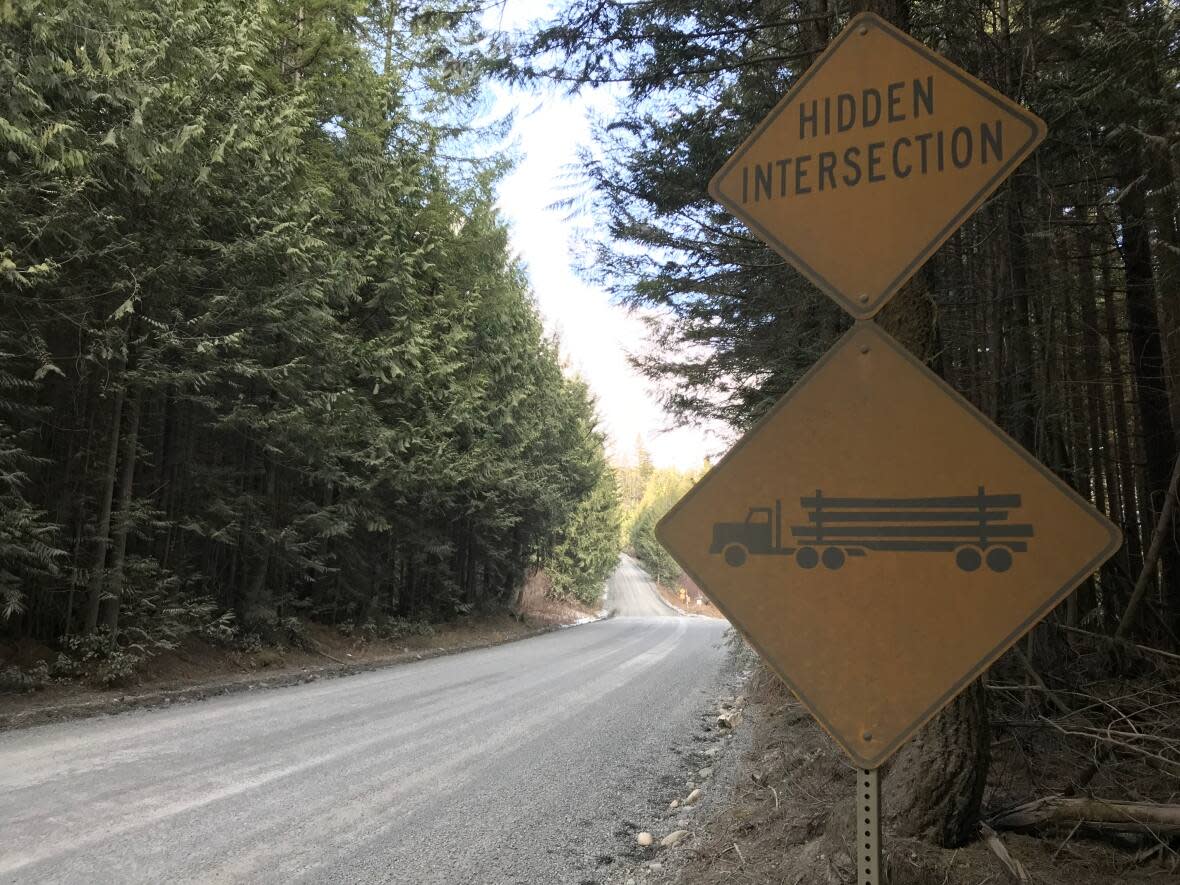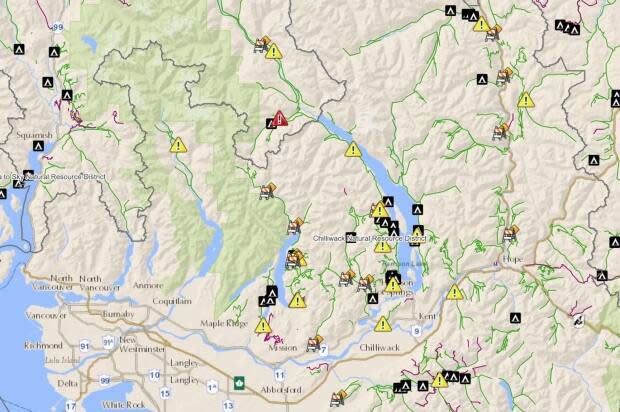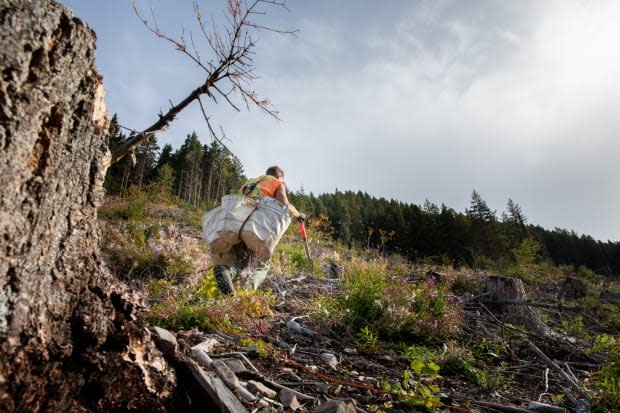'Tremendous damage' done to B.C. resource roads by flood event, could take years to fix

Dozens of resource roads in B.C.'s Fraser Valley are shut down as crews survey damage left behind by devastating rainfall and flooding, spelling trouble for parts of the province's forestry sector.
As many as 43 forest service roads (FSRs) in the Chilliwack Resource District, which covers large swaths of forest from Horseshoe Bay to east of Hope, have been damaged or lost altogether, cutting off mills from much-needed fibre and posing safety challenges for crews planning to reforest remote areas in the weeks ahead.
"It sure did some major damage to a number of our roads up there," Mike Peters, Chilliwack resource district manager, told CBC News. "It will be many years before we get back to fix them even. Just tremendous damage."
An initial closure of all FSRs in the district issued on Nov. 17 out of safety concerns over the adverse weather was rescinded last month. But in the weeks since, there's been substantial damage reported on about 25 per cent of routes in the network, including washouts, missing culverts, and rock falls.
"There are some roads that have lost many bridges and the roads are just no longer there, they just don't exist," said Peters. "We don't have a scope or scale on the dollars yet."

Many roads in the Cascade district, which surrounds Merritt in the central Interior of the province, are also closed.
Industry impacts
Peters says a number of local mills rely on fibre from forests in areas that have become inaccessible by the washout, leaving license holders scrambling to find logs in other areas. Mills in B.C. have already been under stress amid challenges securing fibre and contracting global paper markets.
"Industry has been hit pretty hard by this," said Peters. "They're doing surveys of the roads right now trying to find other tenure and other volume that they can go to to try and bridge the gap."
Meanwhile, reforestation crews are expected make use of district resource roads come February to plant trees in harvested areas, some of which might no longer be accessible by road.

"The initial impacts look pretty bad," said John Betts, executive director of the Western Forestry Contractors Association.
Betts says tree planters are often the first crews to access remote roads following the winter season and will likely come across damage not yet seen by government engineers tasked with surveying the routes.
"It's incumbent on us to be cautious, be looking for the tell-tale signs that the roads might not be ready to support us," said Betts.
Betts said it will likely mean crews will lean heavily on helicopter transport as the province aims to plant millions of trees in the area during the upcoming season, driving up the cost of production.
"We'll be flying in. The trees do need to be planted, they're probably intended for those sites, they're perishable," he said.

Public urged to be cautious
Meanwhile, industry leaders say there's been an increasing amount of recreational users on B.C.'s resource road network over the years, and they're urging members of the public to be cautious.
"I certainly would be concerned about people getting in over their heads," said Jordan Tesluk, a forestry safety advocate with the B.C. SAFE Forestry Program. "People should be driving slower in the coming year just to be prepared for the inevitable more serious washboards, deeper pot holes, and just being able to stop."
The province says funding from both the government and industry will go toward repairing the roads. With concerns over greater frequency of catastrophic weather events related to climate change, a provincial program is underway to adapt resource roads to climate impacts.
John Betts says it's a necessary and worthwhile project, but B.C. needs to be prepared for a substantial infrastructure investment.
"The lesson really is this is only the beginning of us adapting to climate change," he said.


